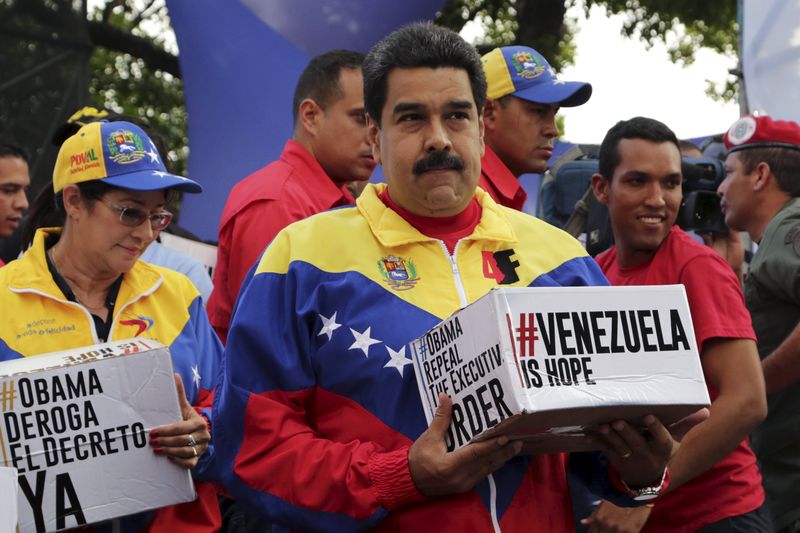CARACAS (Reuters) - Venezuelan President Nicolas Maduro on Thursday said he saw an opportunity to improve strained ties with the United States, softening his stance toward U.S. President Barack Obama in the run-up to a hemispheric summit in Panama.
The two nations historically tense relations took a turn for the worse last month when Washington slapped sanctions on seven Venezuelan officials over alleged human rights violations and declared the OPEC nation a security threat.
Maduro, who has said he will protest that measure during the summit in Panama, commended Obama for saying in an interview that the United States did not in fact see Venezuela as a threat.
"The statements by President Barack Hussein Obama ... could temporarily open a door to begin a new era of historic relations between Venezuela, a free and sovereign Latin America and the empire of the United States," Maduro said at a rally.
Caracas and Washington have had frequent spats over the last 15 years, with diplomatic expulsions common during the rule of late socialist leader Hugo Chavez.
Thomas Shannon, counselor to Secretary of State John Kerry, on Wednesday met with Foreign Minister Delcy Rodriguez in Caracas in an apparent effort to ease tensions in the run-up to the summit.
"We do not believe that Venezuela poses a threat to the United States, nor does the United States threaten the Venezuelan government," Obama said in a written interview with EFE news in advance of his arrival in Panama.
The sanctions primarily targeted Venezuelan officials who were believed to be involved in a crackdown on four months of opposition protests in 2014. They did not apply to the country as a whole.
Venezuelan officials called the often violent demonstrations an effort to destabilize the country.

Maduro on Thursday said more than 10 million people had signed a petition asking that Obama repeal the executive order that created the sanctions. Opposition critics have cast doubt on that figure, with some alleging that civil servants have been coerced into signing.